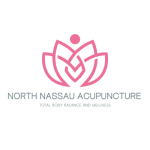Chronic fatigue is more than just feeling tired after a long day. It’s a persistent and overwhelming exhaustion that doesn’t improve with rest, significantly impacting one’s quality of life. People suffering from this condition often feel as though they are running on empty, struggling to muster the energy for daily tasks. While conventional treatments can provide relief, acupuncture in Long Island offers a natural and holistic approach that has been gaining attention for its efficacy in addressing chronic fatigue.
Understanding Chronic Fatigue Syndrome (CFS)
Chronic Fatigue Syndrome (CFS), or Myalgic Encephalomyelitis (ME), is a complex disorder characterized by extreme fatigue lasting six months or more. This fatigue is not the result of strenuous activity and does not improve with rest. Other symptoms often accompany CFS, including:
- Sleep disturbances
- Difficulty concentrating (often referred to as “brain fog”)
- Muscle and joint pain
- Frequent headaches
- Sore throat
- Unrefreshing sleep
While the exact cause of CFS remains unclear, factors such as viral infections, immune dysfunction, and hormonal imbalances are thought to contribute.
How Acupuncture Helps with Chronic Fatigue
Acupuncture is an ancient practice rooted in Traditional Chinese Medicine (TCM). It involves the insertion of thin needles into specific points on the body to restore balance and promote the body’s natural healing processes. Here are some of the ways acupuncture can benefit individuals with chronic fatigue:
1. Restoring Energy Flow (Qi)
According to TCM, fatigue results from imbalances or blockages in the body’s vital energy, known as Qi (pronounced “chee”). Acupuncture targets specific meridian points to promote the smooth flow of Qi, revitalizing the body and alleviating fatigue.
2. Reducing Stress and Enhancing Relaxation
Stress is a significant contributor to chronic fatigue. Acupuncture stimulates the nervous system, encouraging the release of endorphins—the body’s natural “feel-good” chemicals. This helps reduce stress levels, promoting a sense of relaxation and well-being.
3. Improving Sleep Quality
Many individuals with chronic fatigue struggle with sleep issues, such as insomnia or unrefreshing sleep. Acupuncture has been shown to regulate sleep patterns by affecting the production of melatonin, a hormone that controls the sleep-wake cycle.
4. Boosting Immunity
Chronic fatigue is often linked to immune system dysfunction. Acupuncture helps regulate immune responses, making the body more resilient to infections and reducing inflammation—common issues in CFS patients.
5. Relieving Pain
Muscle and joint pain are prevalent symptoms of chronic fatigue. Acupuncture increases blood circulation and releases pain-relieving chemicals, providing relief from discomfort and improving mobility.
What to Expect During an Acupuncture Session
For those new to acupuncture, knowing what to expect can make the experience more comfortable:
- Initial Consultation Your acupuncturist will discuss your symptoms, health history, and lifestyle to tailor a treatment plan specifically for you.
- Needle Insertion Ultra-thin, sterile needles are inserted into targeted acupuncture points. Most people report minimal discomfort, often feeling a slight tingling or warmth.
- Relaxation Period The needles remain in place for 20-30 minutes while you relax. Many patients describe feeling deeply calm or even energized after a session.
- Frequency of Treatments The number of sessions needed varies depending on the individual’s condition. While some may notice immediate improvements, others may require regular treatments over several weeks.
Complementing Acupuncture with Lifestyle Changes
While acupuncture can be transformative, combining it with healthy lifestyle choices can amplify its benefits:
- Nutrition: Eat a balanced diet rich in whole foods, lean proteins, and anti-inflammatory ingredients.
- Gentle Exercise: Engage in activities like yoga or tai chi to improve circulation and reduce stress.
- Stress Management: Incorporate mindfulness practices, such as meditation or deep breathing exercises.
- Adequate Rest: Prioritize sleep and establish a consistent bedtime routine.
Choosing the Right Acupuncturist
Finding a qualified and experienced practitioner is crucial for a safe and effective acupuncture experience. Look for professionals who are licensed and certified by reputable organizations, such as the National Certification Commission for Acupuncture and Oriental Medicine (NCCAOM). Additionally, ensure they have experience treating chronic fatigue and related conditions.
Embracing Acupuncture as Part of Your Healing Journey
Chronic fatigue can feel debilitating, but acupuncture offers a beacon of hope for those seeking natural and effective relief. By addressing the root causes of fatigue and restoring the body’s balance, acupuncture empowers individuals to reclaim their energy and vitality. If you’re struggling with chronic fatigue, consider exploring acupuncture as part of your holistic wellness journey. With consistent treatment and a supportive lifestyle, a revitalized, energized version of yourself may be just around the corner.
For more information about how acupuncture can help with chronic fatigue, visit North Nassau Acupuncture.






Comments